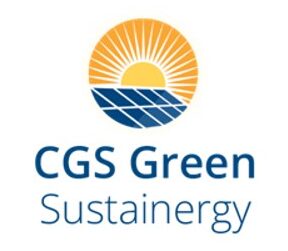- Environmental Audit: We conduct comprehensive environmental audits to assess environmental performance, identify areas for improvement, and ensure compliance with regulatory requirements.
- Environmental & Social Impact Assessment Studies: Our team performs assessments to evaluate the environmental and social impacts of projects, helping organizations make informed decisions and mitigate risks.
- Emission Monitoring Study: We conduct emissions monitoring studies to measure and analyze air emissions, ensuring compliance with emission standards and regulations.
- Safety Audit: Our experts perform safety audits, including electrical safety, health, safety, and environment (HSE) audits, Fire & Life Safety, and construction safety audits, identifying hazards and recommending corrective measures.
- Behavior-Based Safety Assistance: We provide assistance in implementing behavior-based safety programs to promote a proactive safety culture and reduce workplace incidents.
- Environmental Management Plan: We assist organizations in developing effective environmental management plans, ensuring the systematic and sustainable management of environmental aspects.
- Wet and Dry Waste Management Advisory: Our team offers advisory services for wet and dry waste management, helping organizations implement efficient waste segregation, recycling, and disposal practices.
- E-Waste Recycling Advisory: We provide guidance on the proper disposal and recycling of electronic waste, ensuring compliance with e-waste regulations and promoting responsible e-waste management.
Types and Services Related to Environment
- Environmental Impact Assessment (EIA):
- Conducting comprehensive assessments to evaluate the potential environmental impacts of proposed projects or developments. This includes analyzing the project’s effects on air, water, soil, biodiversity, and ecosystems, and providing recommendations for mitigation measures.
- Environmental Compliance:
- Assisting businesses in complying with environmental regulations, permits, and standards set by local, regional, and national authorities. This involves conducting compliance audits, developing environmental management systems, and providing guidance on environmental reporting and documentation.
- Pollution Control and Remediation:
- Developing strategies and implementing measures to control and mitigate pollution. This includes identifying pollution sources, recommending pollution control technologies, and implementing remediation actions for contaminated sites.
- Waste Management:
- Providing guidance and solutions for effective waste management practices. This includes waste characterization, waste reduction strategies, recycling and reuse programs, waste treatment technologies, and ensuring compliance with waste management regulations.
- Water Resource Management:
- Assessing water resources, developing water management plans, and implementing water conservation measures. This includes water quality monitoring, water demand assessments, water supply optimization, and sustainable water use strategies.
- Biodiversity Conservation:
- Conducting biodiversity assessments and developing conservation plans to protect and enhance biodiversity. This involves habitat surveys, species identification, ecological restoration, and implementing biodiversity conservation measures.
- Sustainable Land Use Planning:
- Assisting in developing sustainable land use plans that balance economic development with environmental protection. This includes land suitability assessments, land zoning, green infrastructure planning, and promoting sustainable land management practices.
- Climate Change Adaptation and Mitigation:
- Helping organizations assess and address the risks and opportunities associated with climate change. This includes conducting climate vulnerability assessments, developing climate adaptation strategies, implementing greenhouse gas reduction measures, and supporting carbon offset projects.
- Ecological and Natural Resource Assessments:
- Conducting assessments of ecological resources and natural habitats to inform conservation and land management decisions. This includes ecological surveys, habitat mapping, ecosystem services assessments, and development of conservation strategies.
- Environmental Education and Outreach:
- Developing and delivering environmental education programs to raise awareness, promote sustainable practices, and foster environmental stewardship. This includes workshops, training sessions, public awareness campaigns, and educational materials.
- Sustainable Development Planning:
- Assisting in the development of sustainable development plans that integrate environmental, social, and economic considerations. This involves conducting sustainability assessments, stakeholder engagement, and providing recommendations for sustainable development practices.
